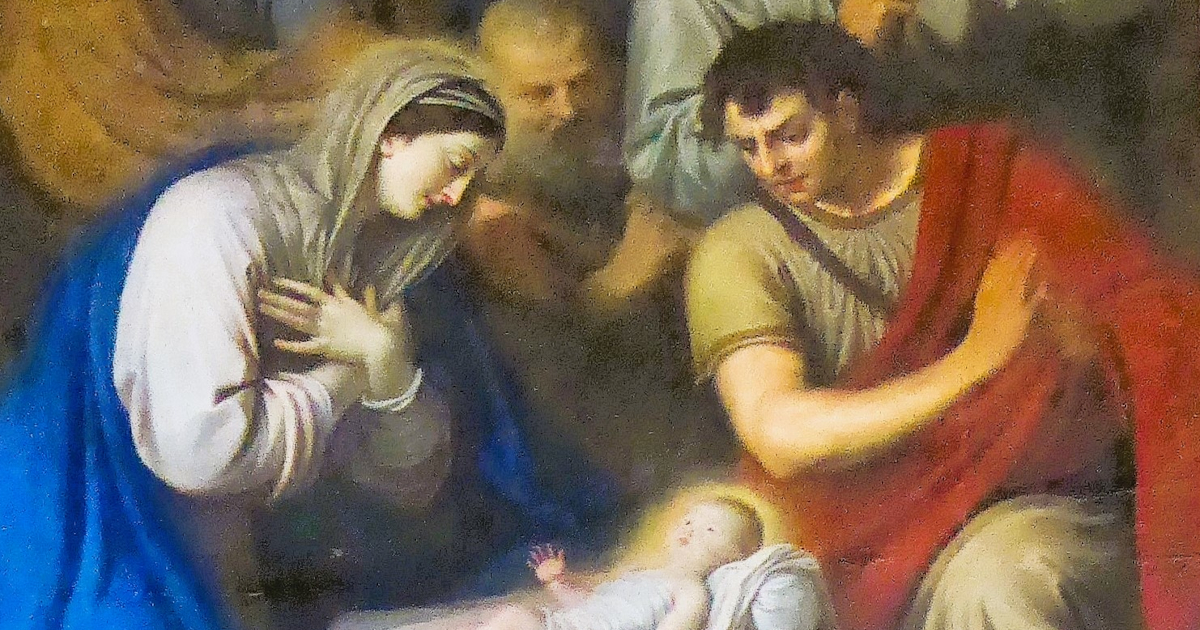The Original Christmas Story
By Ray Konig
Published: November 3, 2025
Some 2,000 years ago, a pregnant woman from Nazareth traveled to the town of Bethlehem, near Jerusalem. It was a journey that could take several days, and she was about to give birth.
Her name was Mary and she traveled with Joseph, to whom she was engaged to be married. She became pregnant through a miracle by God (Luke 1:26-38).
Joseph, as a descendant of King David, was making the journey to his ancestral home of Bethlehem to take part in a census within the Roman Empire (Luke 2:1-21).
When they arrived in Bethlehem, they found no guest rooms where they could stay, so they took shelter where they could. It is traditionally believed that they ended up in a stable, one that was part of a house, or part of a cave.

It was there that Mary gave birth to a baby who would become the most influential person in history. The baby was placed in a manger (Luke 2:7), an open, wooden box that was used for feeding animals.
The birth of Jesus is recorded in the first two chapters of the Gospels of Matthew and Luke. Those verses describe the birth as being miraculous, that Jesus was conceived by the Holy Spirit and born of a virgin mother.
In Matthew’s account, he notes that the miraculous birth is the fulfillment of a prophecy in the Old Testament book of Isaiah:
22 Now all this has happened that it might be fulfilled which was spoken by the Lord through the prophet, saying, 23 “Behold, the virgin shall be with child, and shall give birth to a son. They shall call his name Immanuel,” which is, being interpreted, “God with us.” (Matthew 1:22-23, WEB).
Matthew is referring to Isaiah 7:13-14, which was written about 700 years before the time of Jesus:
13 He said, “Listen now, house of David. Is it not enough for you to try the patience of men, that you will try the patience of my God also? 14 Therefore the Lord himself will give you a sign. Behold, the virgin will conceive, and bear a son, and shall call his name Immanuel.” (Isaiah 7:13-14, WEB)
This prophecy is one of several that speak of a promised descendant of King David in an extraordinary way. These prophecies affirm and reaffirm that the Messiah would be a descendant of David. In Isaiah 7:13-14, Isaiah revisits the first of these prophecies, which is in 2 Samuel 7:12-16, and adds that the Messiah would have a miraculous virgin birth and be called Immanuel, which means God with us.
These two details are related. It is the miraculous birth that positions the Messiah to be both human and divine, to be God with us. Because Jesus was conceived by the Holy Spirit and born of a woman, he is fully human and fully divine. He is God with us.
The Hebrew word alma, which appears in Isaiah 7:14, is often translated as virgin and sometimes as young maiden. This word, alma, is critically important. It appears only three times in the underlying Hebrew text of the Old Testament in reference to a specific person, as explained in the book Jesus the Messiah, by Ray Konig.
The first time that the word alma is used for a specific person is in Genesis 24:43, in reference to Rebekah, a virgin who was soon to be married to Isaac. She gives birth to Jacob, who becomes the father of the 12 Tribes of Israel. Rebekah is the mother of Israel.
The second time that alma is used for a specific person is in Exodus 2:8, in reference to Miriam. She is the sister of Moses and the deliverer of Moses. She plays a key role in saving Moses’ life (Exodus 2:1-10). Moses later becomes the one who delivers the people of Israel.
The third time that alma is used for a specific person is in Isaiah 7:13-14, where Isaiah speaks of the mother of the Messiah, the savior of the world. The Messiah is the one descendant of Israel who offers deliverance to people throughout the world.
As explained throughout the New Testament, Jesus, by way of his miraculous birth, is God incarnate. He is able to be perfect, sinless, humanly mortal and divinely eternal, to suffer and die for our sins, to be resurrected, to offer salvation, to preside over Judgment Day, and to reign eternally over the Kingdom of God, also known as the Kingdom of Heaven.
© Copyright Ray Konig, author of Jesus the Messiah, Jesus the Prophet, Jesus the Miracle Worker, and 100 Fulfilled Bible Prophecies.